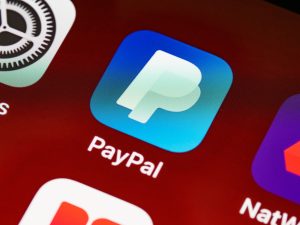KKR, a global investment firm, has recently made a significant move in the European buy now, pay later (BNPL) market by agreeing to purchase up to $44 billion of PayPal's BNPL loans.
This strategic decision by PayPal is seen as a risk aversion play, as it aims to offload a substantial portion of its credit risk and alleviate economic uncertainty in an increasingly challenging environment.
The popularity of BNPL services surged during the pandemic, driven by consumers' preference for paying in installments rather than upfront. However, with the recent rise in inflation, some consumers who relied on BNPL services for their daily needs have encountered difficulties in making timely payments.
This trend has prompted PayPal to take action by shifting a significant portion of its credit risk to KKR, a move that reflects the maturing nature of the secondary debt market within the BNPL sector.
Ben Danner, a Senior Analyst of Credit and Commercial at Javelin Strategy & Research, suggests that PayPal's decision may inspire other companies to follow suit, particularly as economic conditions continue to deteriorate. As uncertainties loom, organizations are looking for ways to manage and mitigate their risks effectively.
Under this agreement, KKR-managed private credit funds will acquire PayPal loan receivables across several key European markets, including France, Germany, Italy, Spain, and the UK. PayPal, a leading digital payment platform, processed over $20 billion in payments worldwide in 2022, marking a staggering 160% increase compared to the previous year. This highlights the significant growth and potential of the BNPL sector.
While BNPL loans present a higher level of risk for enterprises compared to traditional credit products, credit checks help mitigate these risks to some extent. However, BNPL loans typically have more relaxed underwriting standards than standard credit, with firms relying on alternate data and proprietary algorithms to assess applicants creditworthiness. This broader access to credit can be beneficial, but it also increases the danger of lending to individuals without sufficient creditworthiness or means to repay.
It remains unclear how BNPL defaults would fare in a recession, as this aspect has not yet been tested. Consequently, defaults on BNPL loans may not significantly impact credit ratings, potentially leading to higher risk exposure for corporations like PayPal during an economic downturn.
The growth of the BNPL market and its associated risks will continue to be closely monitored, particularly regarding default rates and their impact on credit ratings. As the sector evolves, it is crucial for market participants to strike a balance between expanding credit access and ensuring responsible lending practices for long-term sustainability.
























